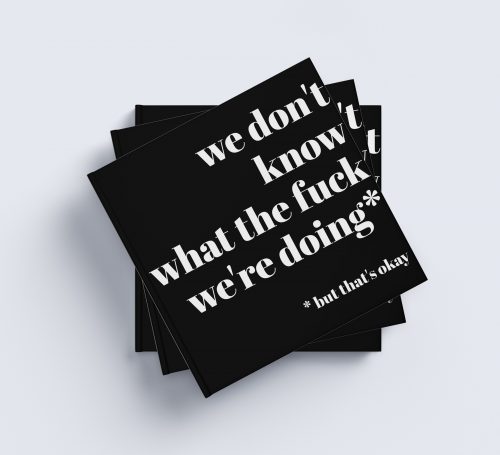The DELF B1 Exam: My Experience
what is the DELF?
Before I share my personal experience with the DELF B1, I thought it would be (highly) relevant to first explain what the exam itself is and how the DELF/DALF diplomas work. This is the definition the CIEP provides:
The DELF and DALF are diplomas awarded by the French Ministry of Education to prove the French-language skills of non-French candidates.
Simple, no? They are standardized exams which can be taken all over the world for non-native French speakers to prove their comprehension of the language to potential employers, universities, etc.
There are 4 independent diplomas for the DELF (diplôme d’etudes en langue française), ranging from levels A1 to B2, and two further beyond that (the DALF, or diplôme approfondi de langue française) at levels C1 and C2. At least a B2 level of French is generally required for those who wish to work at or study in French institutions.
Each exam of four parts is graded out of 100. A score of 50/100 is required in order to receive the diploma.
what does the B1 exam consist of?
All of the exams consist of four individual parts which test the four pillars of communication in any language: listening comprehension, reading comprehension, written expression, and oral expression. At the intermediate B1 level, those taking the exam should be capable of independently maintaining interactions and discussions in the language, as well as be capable of giving personal opinions on a given topic.
Part 1: Listening Duration of 25 minutes
Listen to 3 recordings (each is played twice) and respond to related questions. Each recording is no longer than 6 minutes.
Part 2: Reading Duration of 35 minutes
Read and respond to questionnaires on two written documents.
Part 3: Writing Duration of 45 minutes
Express personal opinions on a provided writing prompt using at least 160 words.
Part 4: Speaking Duration of Approximately 15 Minutes (plus 10 minutes of preparation time)
There are 3 parts to the speaking examination: 1) A guided interaction where you speak about yourself, describing your background, interests, and hobbies, 2) An exercise of interaction/role play with the examiner in which you must resolve a problem, and 3) A 3 minute-monologue in which you give your personal opinions on a provided article which is designed to elicit a reaction.
The first two parts of the exam are conducted sans preparation, and you have 10 minutes to read the article and prepare some notes for the third.
my b1 experience
I woke up early the morning of the exam. Not as a result of nerves of anxiety… The night prior I slept rather well, all things considered, and upon waking felt much calmer than I’d anticipated. I was well prepared, confident in my level of French, and though I’d been dreading the day for quite some time, it was, in my opinion, a dread of the normal sort – the kind one has before any sort of exam, because exams suck. Even the easiest of tests is still a test, and no one enjoys sitting behind a tiny desk in a cramped room for two hours answering banal questions and analyzing boring texts. Where was I… oh, yes.
I’d set my alarm for 8 am, and was up and out of bed well before the second ring. I live in central Paris, and the examination center is located in the suburbs, on the same side of the river in which I reside, but still relatively far. I had planned to take an Uber rather than subject myself to the frenetic atmosphere and unpredictability of the Parisian metro during rush hour, and that is just what I did…after rising, brushing my teeth and hair, donning a flowery blue vintage blouse and pair of black pants, and forcing myself to eat something before rushing out the door. The previous day I’d purchased the ingredients for a fairly large, well-balanced breakfast but the morning of felt incapable of consuming even the littlest thing. Nevertheless, knowing that a healthy breakfast is a critical key to success, I managed to finish a couple of slices of smoked salmon and packed a sandwich and some baby carrots to lunch on between the written and oral examinations.
I’d received a convocation by mail several days earlier, with the date, location, and times of my exams. The written part, which consisted of the first three sections outlined above, began promptly at 10:30, and my individual oral exam was scheduled for 4:00. As I wouldn’t have time to return home between the two, and given that the suburbs of Paris are kinda-sorta sketchy, I decided to book a 2 pm hair appointment at my hair salon, which just happens to be a 10 minute walk from the examination center. But more on that later…
My Uber dropped me off at the location, which was terribly grim… dingy, dark, and crowded. I presented my convocation and was led to the room in which I’d be taking the test, along with about ten or twelve others. The room was equally divided between men and women, and I appeared to be the youngest among them. Two women who seemed to be close friends chatted in French towards the front of the room; everyone else was silent, wringing their hands or doodling with their writing utensils. All phones and bags had been relegated to back of the classroom, and we were permitted to have only a pen or two, our convocation, a piece of ID, and a bottle of water, should we desire, before us. The woman moderating the classroom informed us it was our last chance to use the restroom before the exam began, as we would be forbidden to exit the room throughout the 1h45 minute duration of the test. She then had us mark off our names on an attendance sheet and handed out an exam booklet to each of us.
And just like that, it was on.
The audios were far simpler than I’d expected, and the recordings were in fact quite slow. If I remember correctly, the first was a conversation between two friends discussing a recent trip one of them had taken to Senegal, the second was a radio interview between a man and a woman on the topic of spelling, and the third was also an interview, this time with the owners of a sort of concept mechanic shop. We had a few moments to read the questions before the audios commenced, and so after the first listen of each I was able to respond to nearly all of them. The second listens allowed me to fill in the blanks or recall points I initially disregarded or missed completely.
The reading comprehension bits were fairly standard. I can’t recall the subject of the first, but the second piece, which was significantly longer, was about how French people (well, all people I’m sure, but in this case they were specifically discussing France) have a tendency to select the prettiest fruits and vegetables at the supermarket, and how the imperfect fruits and veggies therefore go to waste.
For the writing exercise I had to write at least 160 words (I think I wrote around 180) on a provided topic, which was reviewing a French/English language exchange I’d (according to the prompt) participated in the previous year at my French university. Basically, I was free to make up an entire story and it was actually rather fun.
The exam ended and our tests were collected just after noon. I then departed for my hair salon, nearly two hours before my appointment. I had nothing else to do, after all. In the waiting room I munched on the carrots I’d packed and responded to e-mails and messages on my phone. The time sped by, and before I knew it it was 3:45 and I was leaving the salon with healthy, freshly cut hair and a nervous skip in my step. My ability to speak – not understand, but really speak – French is the aspect of the language in which I’ve the least confidence in myself and it was inevitable that this section of the test would be the most trying for me.
On my way back to the exam center I stopped in a cute little park to eat my sandwich and prepare myself mentally for the three speaking exercises to come. When I reentered the center those I’d taken the first part of the test with collectively were sitting in the reception, waiting to be called for their turn at the oral exam. The atmosphere was charged with a fraught sort of energy, and a few people here and there made small talk while others buried themselves in their phones. The examiners were running about an hour behind schedule, and nobody was particularly content about this. At 5 pm, an hour later than expected, I was summoned. I greeted the examiner with a bonjour and she led me to a small office where I was explained the nature of the three tests and chose at random my topic prompts for the second and third parts. I then followed her to a computer lab sort of room where the two people who had been called before me were seated, preparing themselves for their turns. When I arrived one of the two women was called for her exam, and I installed myself in an uncomfortable plastic chair and began to read the article I’d chosen. Whilst in the other room I’d selected two topics per test out of a hat (not an actual hat, the little sheets of paper were actually scattered on the desktop, but you get the idea), and chose the one I’d preferred for each. The first part of the exam would of course just be an introduction of myself. For the second part I’d selected a role-play conversation between myself and the examiner in which she would play a friend of mine who wanted to quit school to travel the world. It would be my job to convince her to not abandon her studies, or at the very least give my opinion on why she should stay in school, as well as provide examples of ways she could learn about the world without leaving uni. For the third part I selected an article about how workplaces and employers encourage and teach their employees to lead healthier lifestyles in order to promote their efficiency at their jobs, from providing balanced snacks at work to bringing in personal trainers every so often for their employees to take advantage of.
In the ten minutes I had to prepare, I furiously scrawled the following on a sheet of provided blank white copy paper: (this is exactly as I wrote it, spelling and grammar mistakes and all)
C’est article s’agit de comment les gens peuvent manger mieux pour travailler plus et être plus efficace.
- La qualité de la nutrition est très important pour la santé des gens
- Il y a des enterprise qui comprendent ce message très bien
- La norriture qu’on mange a des effects sur notre humeurs, notre énergie et notre capacité d’attention.
- Pour être très efficace au travail, il faut manger des choses qui sont bon pour la santé.
Je pense que c’est vrai qu’il faut que les gens mangent très bien pour leurs travail. Je trouve l’idée que des enterprises offrent des produits frais à tarifs attractifs génial. De cette façon, les gens peuvent manger bien et avoir assez d’énergie pour faire leurs tâches de travail.
A mon avis, l’idée de mis en place des rencontres avec des entraîneurs sportifs est formidable aussi. C’est très bon aussi que quelques enterprises offrent des fruits frais tous les mardis. Ça permets les gens mangent des choses qui sont bon pour leur santé.
Graçe à des enterprises comme ça, beaucoup de gens sont maintenent capable de travailler mieux, avec plus d’energie et être beaucoup plus efficace. Bonne norriture est très important pour la capacite d’attention et le bon humeur de gens pendant leurs journées de travail. S’ils adoptent des bons réflexes alimentaires leurs vies et leur travail vont ammeliorer. Ça sera gènial pour euxs et pour leurs enterprises aussi.
Yep. This paragraph is riddled with spelling mistakes and grammatical errors. I simply didn’t have the time to correct it, however, and quite honestly didn’t care, as I wasn’t being tested on my ability to write here and no one apart from myself would see these notes.
And then it was my turn! I entered the room and smiled at the examiner, who appeared to be utterly exhausted and not in the best humor. But who could blame her? Imagine having to repeat the same oral exam with dozens of people throughout a single day? I kept this in mind throughout the oral exam and was as kind and polite as possible. I’d like to think this paid off, as by the end she was smiling back and me, told me ‘no worries’ about how I’d performed, that I didn’t have much of an accent, and that when my accent did come through it was charming. (I do have an obvious accent, of course, I’m sure what she meant by that is that it’s not as strong as many other Americans’. Or maybe she was just being nice.) She also wished me a bonne continuation ! But back to the beginning of the oral test…
I began by presenting myself in a couple of minutes, and did falter at once point during my mini-speech, as I wasn’t quite sure what else to add. But I managed to think of something and just kept on babbling. The examiner then asked me why I’d chosen to come to France, and I responded to this question as well.
The second part lasted about 2 minutes and I exchanged a few words with the examiner, who was playing the role of my friend, explaining that it’s important to complete your studies before taking off to see the world, even if you’re fed up with following courses day to day at uni. I tried to say something along the lines of, “You can travel through books and films without leaving France!”, but I’m not quite sure if it came out right. Oof.
And finally, for the third part (the one which I’d prepared for), I spoke for a couple of minutes, maintaining eye contact with the examiner while glancing every so often at my notes and fluffing up what I’d written by adding a few extra sentences here and there while in the process of speaking. She asked me another question or two, to which I responded with my thoughts, and then – it was over!
I left the building feeling content and relieved, eager to not think about exams of this sort for the months to come. Though I’ve now officially completed the inscription for the B2, which I’ll be taking towards the end of August. Something to look forward to! (JK)
final thoughts
So, did I pass? Did I, did I, did I?
Um, I won’t actually know until August. (Yes, seriously.)
But how do I think I did?
I think I passed. I think. I’ve long since learned however, that post-judging an exam performance based on feelings isn’t always the most accurate method of doing so, as memories are liable to be skewed especially in the weeks or months following the test. So we’ll see! Regardless, I’ll be taking the B2 before summer’s end, as initially planned months back. The B1 was intended to be a warm-up of sorts, for me to acquaint myself with how the exams work in order to be less nervous the day of the B2, which will be more difficult and has been my real target all along.
Thanks for reading, everyone! And if you’ve stumbled upon this post while searching for advice prior to taking the exam for yourself… I wish you the best of luck!
xoxo,
Abby








Congrats on taking the B1 and good luck with the B2! You’ve worked so hard to learn French; whatever the result, the process was definitely worth it! -Audrey | Brunch at Audrey’s
Aww, thanks so much, Audrey! xo
ahhh it sounds like you did great!!!! I’ll cross my fingers for you!
Thanks, Kayle! Honestly that means the world! <3 xx
Thank you for sharing your experience. I found it very useful! I am not really confident with my level of French and dread the verbal exam. I’m slightly better at writing and I think it’s a great idea to write down my thoughts. Au final, avez-vous reussité? Merci encore!
Abby, this is really, really helpful. Thanks for taking the time to share.
Whatever else happens in your life, do keep writing.
Best wishes and, hey, how’d you do?
Hey Abby, did you end up passing this exam?
Great insight into the B1 exam btw!
Thanks for the summary. Can you share what you used to study? Did you end up passing?